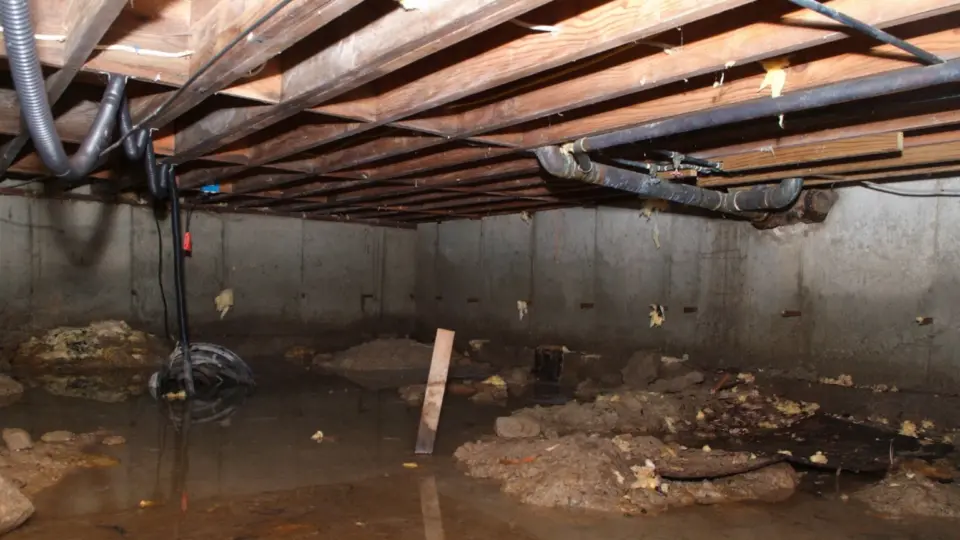
When it comes to preparing a home for resale, most sellers focus on curb appeal, fresh coats of paint, upgraded kitchens, or staged living rooms. But lurking quietly beneath it all—often literally—is a feature that can dramatically influence a buyer’s decision and a home’s market value: a waterproofed basement.
Waterproofing may not have the visual flair of a remodeled bathroom or the wow factor of new hardwood floors, but it offers something arguably more important—peace of mind. It protects the home’s foundation, preserves the air quality, and signals to buyers that this house has been well cared for from the ground up.
In real estate, unseen issues often become the biggest deal-breakers, and nothing sends buyers running faster than signs of water damage, mold, or a damp, musty basement.
Let’s explore why basement waterproofing isn’t just a behind-the-scenes improvement—but a silent hero that could make or break your sale.
How Does Basement Waterproofing Impact Home Resale Prices?
Home value is influenced by more than aesthetics. Buyers are looking for stability, durability, and signs that they won’t be hit with costly repairs after moving in. A dry, clean, and structurally sound basement is a major asset—and waterproofing it before listing can pay off in more ways than one.
Here’s how waterproofing boosts resale value:
- Eliminates red flags during inspection
Water intrusion, mold, and foundation cracks are major concerns during home inspections. Waterproofing helps prevent these issues from even appearing, reducing the chances of price negotiations or lost deals. - Justifies a higher listing price
Buyers are often willing to pay more for homes that have been proactively maintained. A professionally waterproofed basement adds to the home’s credibility and long-term appeal. - Reduces time on the market
Homes with visible signs of water damage can linger for months. A dry basement gives buyers confidence and makes a faster sale more likely. - Opens up livable square footage
A dry basement is usable space—whether for storage, laundry, or even finishing. Usable square footage can improve a home’s value per square foot calculation. - Avoids post-sale liability
Sellers who invest in waterproofing eliminate potential future complaints or lawsuits from undisclosed basement issues.
While the return on investment for waterproofing varies by region and market, it often increases a home’s resale value by tens of thousands of dollars—especially in areas prone to heavy rain or high water tables.
What Role Does Waterproofing Play in a Buyer’s Decision?
Homebuyers walk through houses imagining not just how they’ll live—but how the house will hold up. No one wants to fall in love with a beautiful kitchen only to discover a damp basement that smells like mildew. That’s why waterproofing, while not glamorous, plays a powerful psychological and practical role in the buyer’s decision-making process.
Why buyers value basement waterproofing:
- Signals proactive maintenance
A home with waterproofing tells buyers, “This homeowner didn’t cut corners.” It implies a level of responsibility and foresight. - Protects future investments
Buyers planning to finish a basement won’t even consider it unless they know it’s protected from water. - Reduces future repair anxiety
Waterproofing eliminates fears of flooding, mold growth, or ruined personal belongings—especially for families storing valuables or heirlooms. - Improves indoor air quality
Damp basements affect air throughout the house. Knowing a basement is dry reassures buyers about the overall air quality and health of the home. - Provides peace of mind
Simply put: no one wants to move into a home and worry about water seeping in during the next thunderstorm.
For buyers comparing two homes—one with a history of water damage and one with documented waterproofing—the choice is clear. Even if they don’t say it out loud, buyers instinctively trust homes that are dry below the surface.
Can a Waterproofed Basement Improve a Home’s Structural Integrity?
Absolutely. Water is the quiet enemy of many homes. It erodes foundations, shifts soil, and invites mold that can weaken wood framing. When water is left unchecked in the basement, the long-term structural consequences can be severe—and expensive.
Basement waterproofing doesn’t just protect what’s visible. It preserves the bones of the home by keeping water away from critical support structures.
Structural benefits of basement waterproofing:
- Prevents foundation cracks
Hydrostatic pressure from groundwater can cause concrete to crack and shift. Waterproofing systems help relieve this pressure and direct water safely away. - Preserves wall integrity
Water seepage weakens cinder block and concrete over time. A properly waterproofed wall retains its strength and durability. - Reduces soil movement under the home
Water accumulation around the foundation can lead to erosion and settling. Waterproofing minimizes moisture intrusion that contributes to shifting soil. - Prevents wood rot
In homes with wooden joists or beams, water exposure in the basement accelerates rot and attracts pests like termites. - Supports long-term remodeling efforts
If a future buyer wants to renovate or finish the basement, structural integrity is a prerequisite. Waterproofing lays the groundwork for expansion.
Waterproofing is not just a moisture solution—it’s a foundation preservation strategy. By eliminating the conditions that cause structural problems, you’re securing the long-term stability of the home, and buyers recognize that value—whether consciously or not.
Why is Waterproofing Often Overlooked During Home Resale Preparations?
Despite its benefits, basement waterproofing doesn’t always make it onto a seller’s “preparation checklist.” Why? Because it’s invisible unless it’s missing. Sellers tend to prioritize visual upgrades that make a home more marketable—paint, appliances, countertops—over behind-the-scenes improvements. But that’s a mistake, especially in markets where basements are common and prone to water issues.
Common reasons waterproofing is overlooked:
- It’s not visible in listing photos
Unlike staging a living room or adding new fixtures, waterproofing won’t show up on Zillow. It doesn’t “sell itself” in pictures. - It’s misunderstood
Many homeowners assume minor dampness is normal or not a deal-breaker. But buyers—and inspectors—know better. - It’s perceived as expensive
While some systems can be costly, many waterproofing solutions are surprisingly affordable—and the ROI on resale is often significant. - It’s not urgent—until it is
Some homeowners avoid addressing water issues unless there’s standing water or visible mold. This reactive approach costs more later. - There’s a belief that the buyer “won’t notice”
This assumption can backfire when a home inspection flags moisture levels, leaks, or signs of mold.
Sellers who want to maximize value should treat basement waterproofing as a key investment, not an afterthought. When paired with visual upgrades, it forms a more complete and compelling picture of a well-maintained home.
Silent, Steady, and Worth Every Drop
You don’t need to see a dry basement to appreciate it—you just need to know it’s dry and protected. That’s the real power of waterproofing. It’s not flashy, but it holds the house together. It protects your biggest asset from the inside out and communicates something that buyers trust: this home was built—and maintained—to last.
In a market where buyers are wary, inspectors are thorough, and competition is fierce, basement waterproofing could be the quiet upgrade that seals the deal—figuratively and literally.
Protect Your Home’s Value Before You List
At Freedom Crawlspace Services, we help homeowners turn overlooked spaces into selling points. Our professional waterproofing solutions safeguard your foundation, eliminate moisture concerns, and boost buyer confidence. Thinking of selling? Let’s make sure your basement tells a story of strength, not worry. Schedule your waterproofing consultation today.
